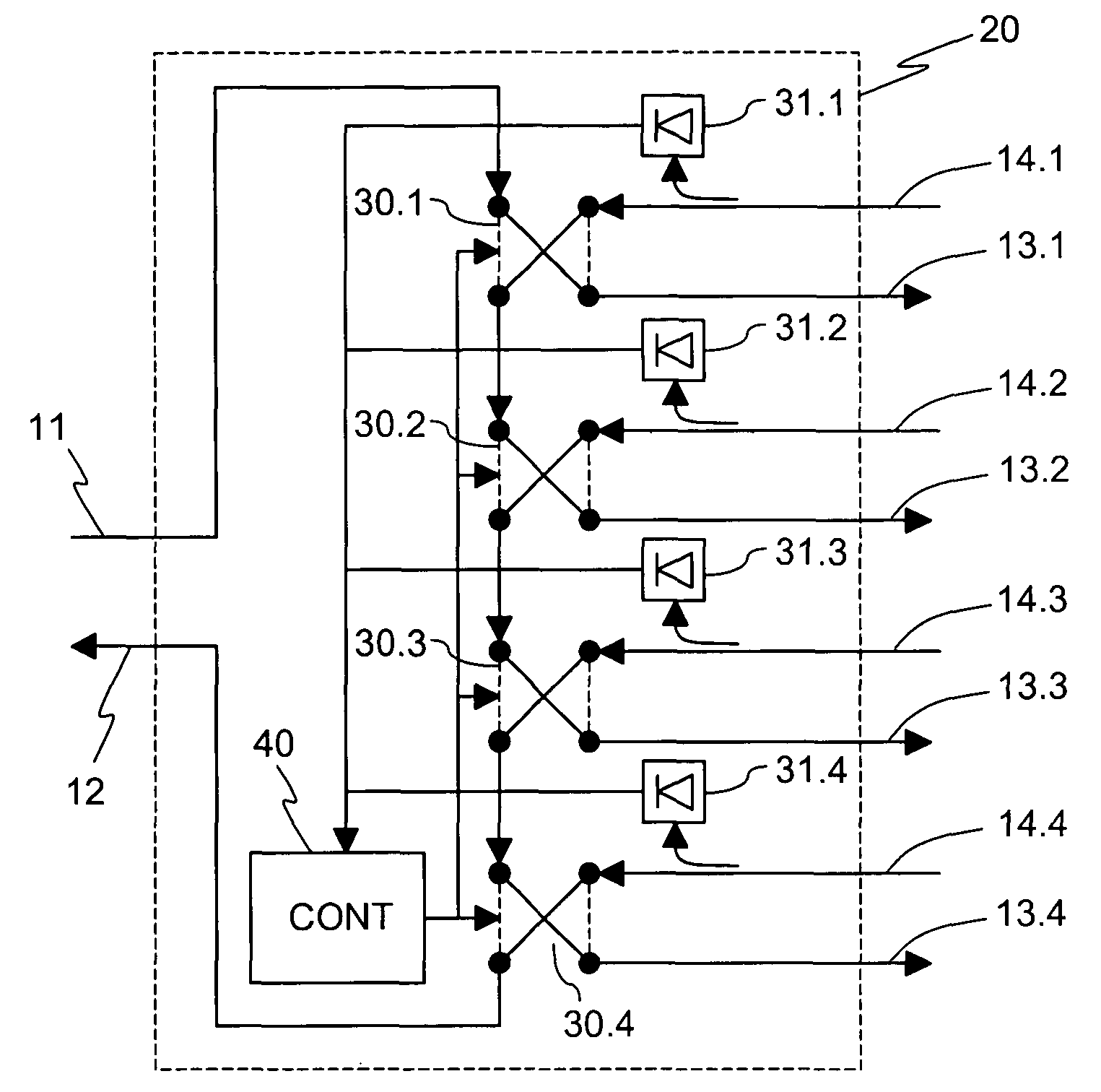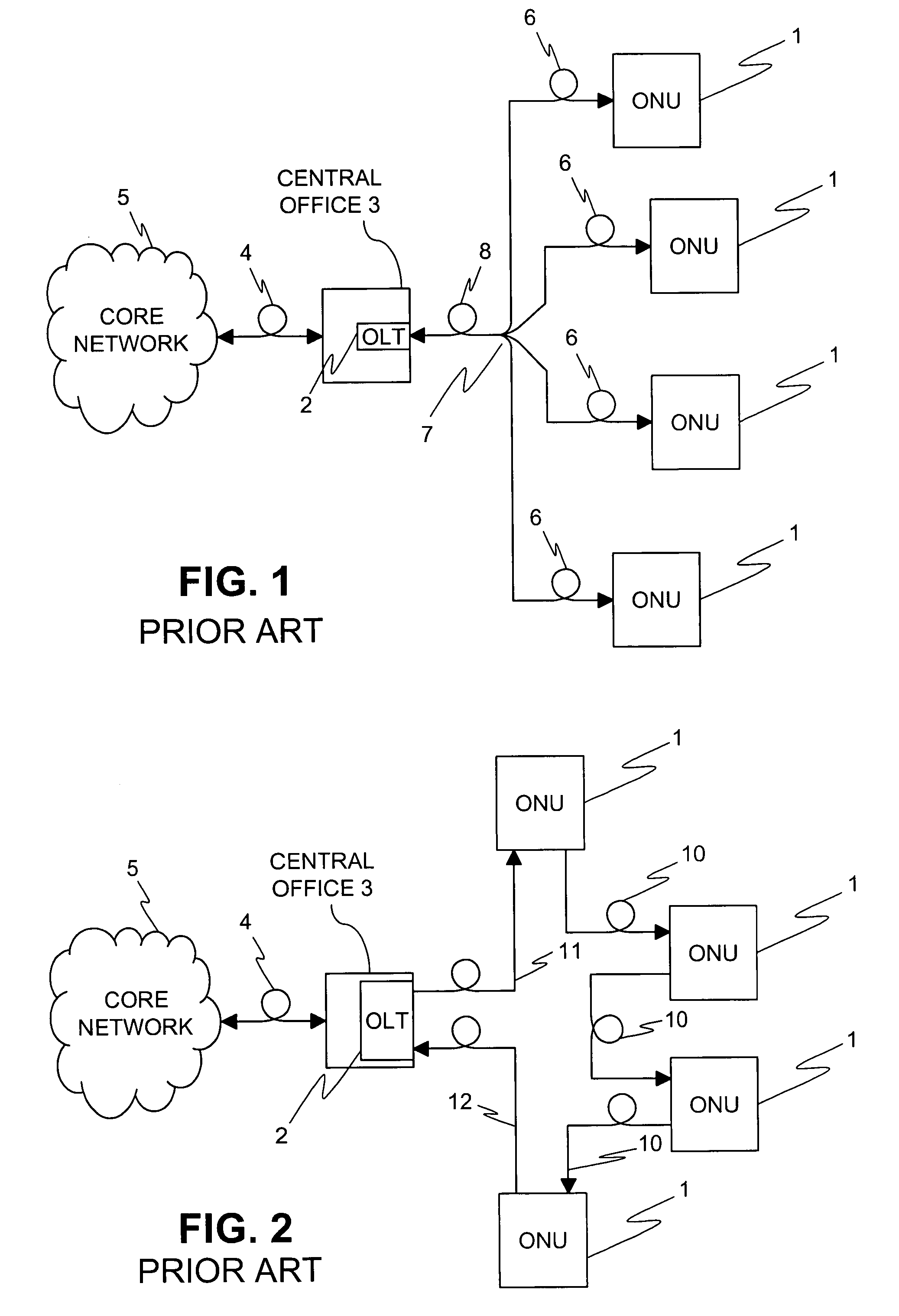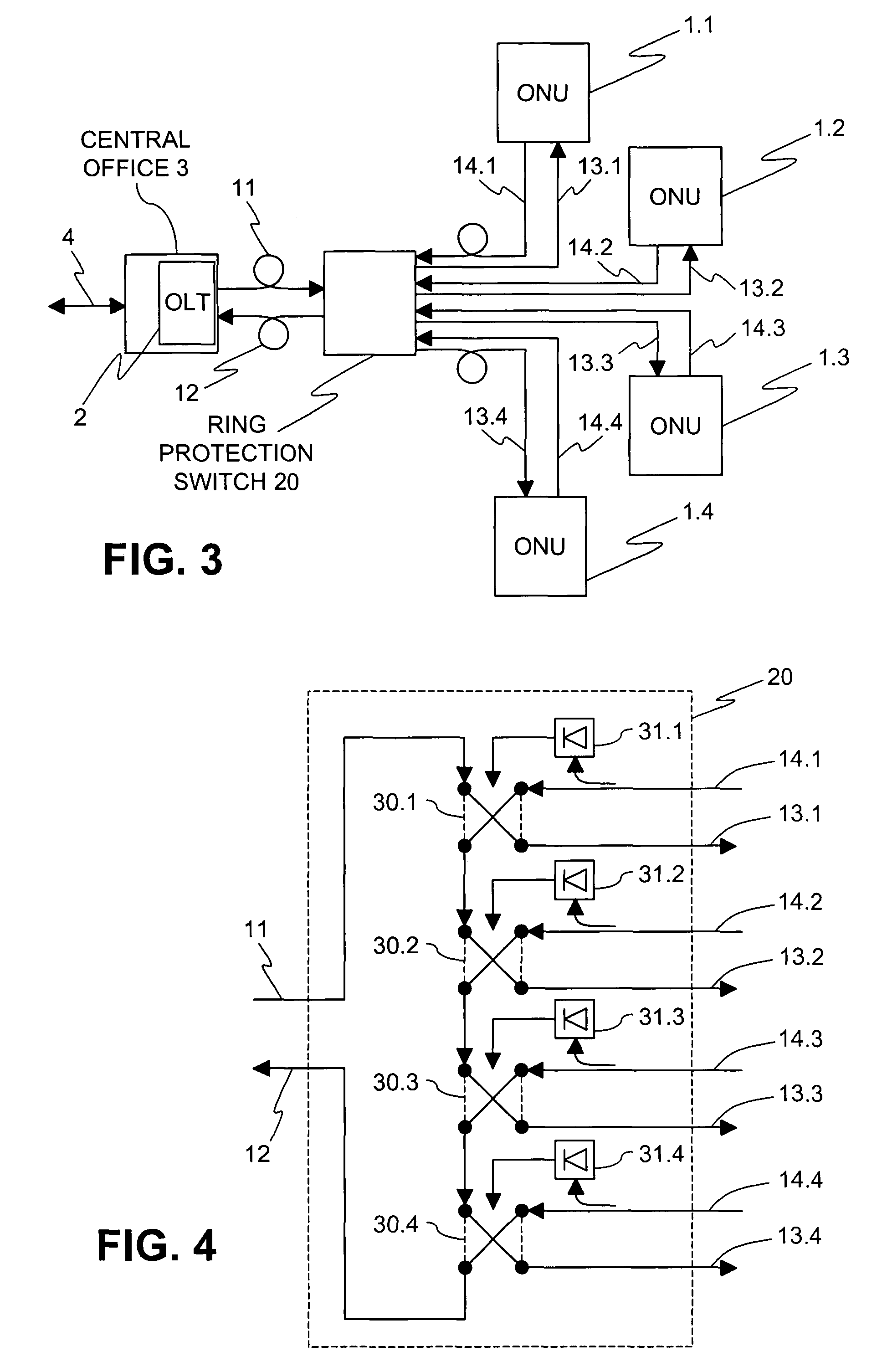System and method for a protected optical access ring network
a protection network and optical access technology, applied in multiplex communication, transmission monitoring, instruments, etc., can solve the problems of many fiber connections terminating in the same central office, consuming a considerable amount of power, and point-to-point structure, and achieves simple and robust construction, simple and robust effect, and removal of the vulnerability of the ring topology to failur
- Summary
- Abstract
- Description
- Claims
- Application Information
AI Technical Summary
Benefits of technology
Problems solved by technology
Method used
Image
Examples
Embodiment Construction
[0018]FIG. 1 shows a number of optical network units 1, situated at or near customer premises, connected to an optical line terminal 2 situated in a central office 3. The central office 3 is further connected via an optical fiber connection 4 to a core network 5. The connection between the optical network units 1 and the optical line terminal 2 is a so-called tree-and-branch topology. This topology consists of a plurality of individual optical fibers 6, one connected to each of the optical network units 1 and connected via a splitter / combiner 7 to a single optical fiber 8, which is connected to the optical line terminal 2. Thus, signals from optical line terminal 2 proceed via single optical fiber 8 to splitter / combiner 7 where they are divided and sent to all of the optical network units 1 via individual optical fibers 6. Since the power of the outgoing signals is divided by the splitter / combiner 7, the power reaching the optical network units 1 via the individual optical fibers 6 ...
PUM
| Property | Measurement | Unit |
|---|---|---|
| power | aaaaa | aaaaa |
| time | aaaaa | aaaaa |
| distance | aaaaa | aaaaa |
Abstract
Description
Claims
Application Information
 Login to View More
Login to View More - R&D
- Intellectual Property
- Life Sciences
- Materials
- Tech Scout
- Unparalleled Data Quality
- Higher Quality Content
- 60% Fewer Hallucinations
Browse by: Latest US Patents, China's latest patents, Technical Efficacy Thesaurus, Application Domain, Technology Topic, Popular Technical Reports.
© 2025 PatSnap. All rights reserved.Legal|Privacy policy|Modern Slavery Act Transparency Statement|Sitemap|About US| Contact US: help@patsnap.com



